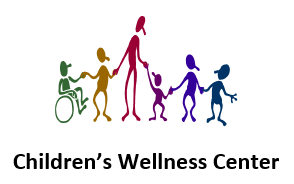Brain development begins in the womb and doesn’t stop until about age 25. However, children undergo a critical period of brain development through their infancy and early childhood years. In fact, about 90% of a child’s brain development will be completed by age 5. Throughout this critical period, a child’s experiences and interactions directly shape the brain’s foundational structure for function, health, learning, and behavior.
Providing infants and toddlers with exposure to a variety of rich sensory stimulation while helping them develop strong, secure bonds with their caregivers will help support healthy brain development, creating a strong foundation for your child’s future.
How to Support Infant Brain Development With Sensory Stimulation
For infants, everyday experiences provide opportunities for learning and enrichment. Exposure to a wide array of experiences, guided by parents and caregivers, will help infants develop their senses, motor skills, and language abilities.
Some activities for positive enrichment include:
- Talking to your baby
- Singing to your baby
- Playing music for your baby
- Reading to your baby
- Playing with your baby
- Providing opportunities to safely explore the world with all five senses
- Going for nature walks or playing in the park
- Enjoying tummy time
- Playing peek-a-boo
- Playing with sensory bags
- Doing baby yoga together
- Exploring different textures
- Squishing playdough
- Shaking rattles
With each new or repeated experience, your baby’s brain forms new neural connections and pathways while reinforcing and strengthening existing ones. These learning and developmental experiences help your baby’s brain grow and develop, allowing them to learn and improve a variety of skills.
How to Support Healthy Brain Development With Responsive Caregiving
Responsive caregiving provides infants and toddlers with a safe and secure environment for learning and growing while helping them build strong relationships with their caregivers. Responsive caregiving also helps to promote healthy brain development, supporting language and communication skills and social and emotional development.
With responsive caregiving, parents and caregivers should read their infant’s cues and respond promptly to their needs, practicing “serve and return” back-and-forth interactions. In this style of communication and interaction with infants, the infant communicates in various ways, such as crying, babbling, smiling, giggling, or gesturing. Caregivers should then respond promptly with eye contact, verbal communication, facial expressions, play, nurturing touch, or affection.
Some of the ways you can practice responsive caregiving on a daily basis include:
- Talking to your child in a soft, soothing voice when they are upset
- Speaking, singing, and reading to your child throughout the day in response to their bids for attention
- Involving your infant in conversations by asking them questions, even when they can’t yet answer
- Verbally telling your child what is happening around them by describing what you’re doing
- Holding and rocking your child to offer nurturing, reassurance through touch when they are distressed
- Offering supportive physical touch by caressing their forehead, placing your palm on their chest, holding their hand, or offering your finger for them to hold
- Changing your infant’s diaper and soothing them through the process
The back-and-forth exchange of responsive caregiving helps to strengthen brain connections, especially those that are related to language, communication, social skills, and emotional development.
Responsive caregiving also helps children develop the areas of their brain that are responsible for emotional regulation, impulse control, learning, executive function, short-term memory, and focus.
In addition to back-and-forth exchanges that promote communication development, responsive caregiving also builds your child’s ability to trust you. For example, as you learn to understand your child’s cues and respond consistently, your child learns that they can trust and rely on you. They can then feel safe and know that their needs will be met. As they continue to grow, develop, and gain independence, your child’s trust in you will provide a safe foundation for them to explore, learn, self-soothe, and begin developing their independence.
When to Seek Professional Help and Guidance Regarding Your Child’s Development
The brain development of infants and toddlers who do not receive enough stimulation, do not develop secure bonds, or who experience early traumas can be significantly impacted, and this can affect their learning abilities, relationships, health, and behaviors for life.
If you notice that your child is delayed in achieving developmental milestones, experiences language problems, struggles with fine motor skills, or exhibits unexplained behavioral changes, we recommend scheduling a checkup with our pediatrician at Children’s Wellness Center. We can talk with you about what you have noticed, examine your child, and provide you with a recommended action plan to provide your child with resources and therapies to support brain health and proper development.
If you have any questions about what you can do to support your baby’s brain development during this crucial period, we welcome you to contact us.

